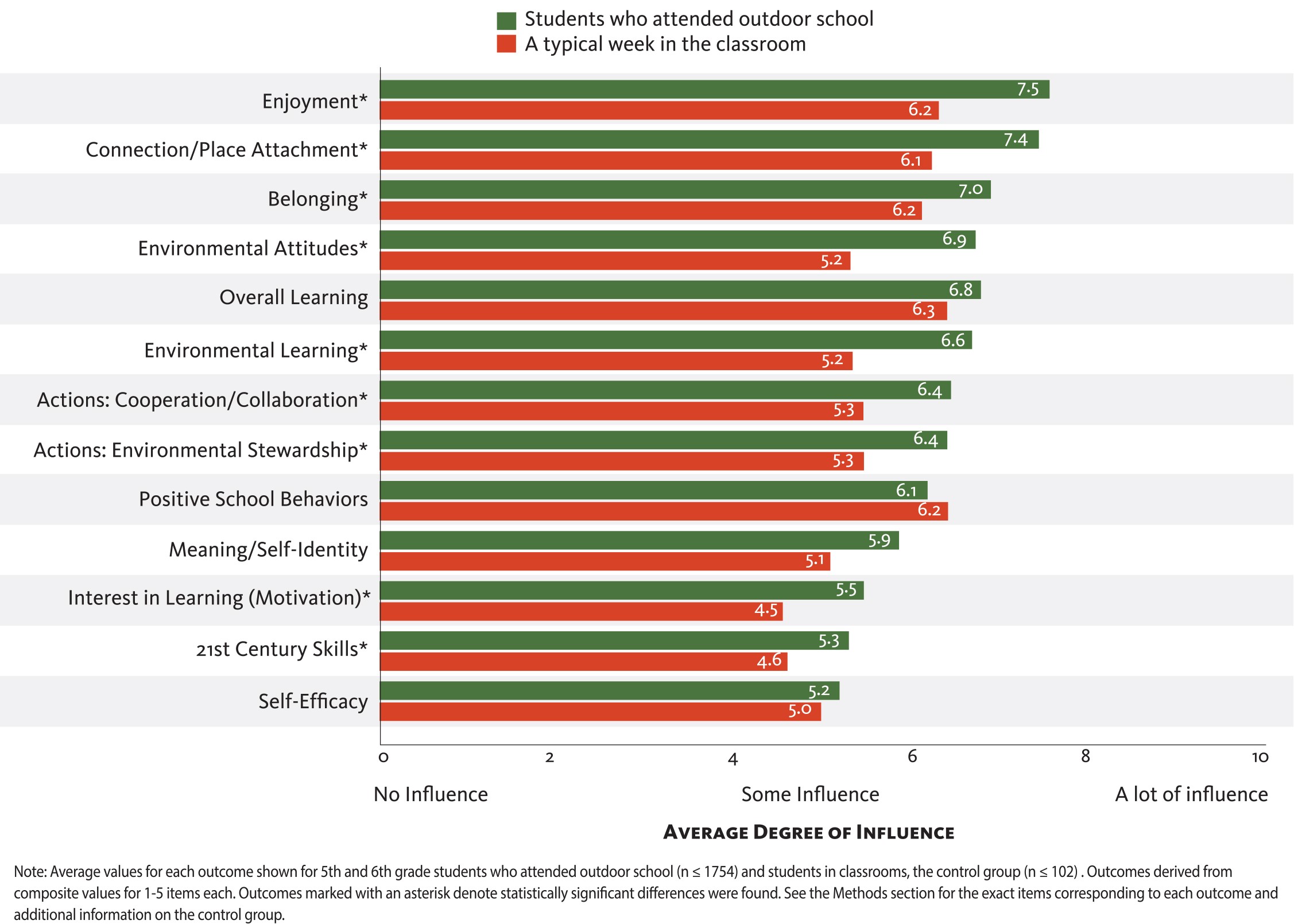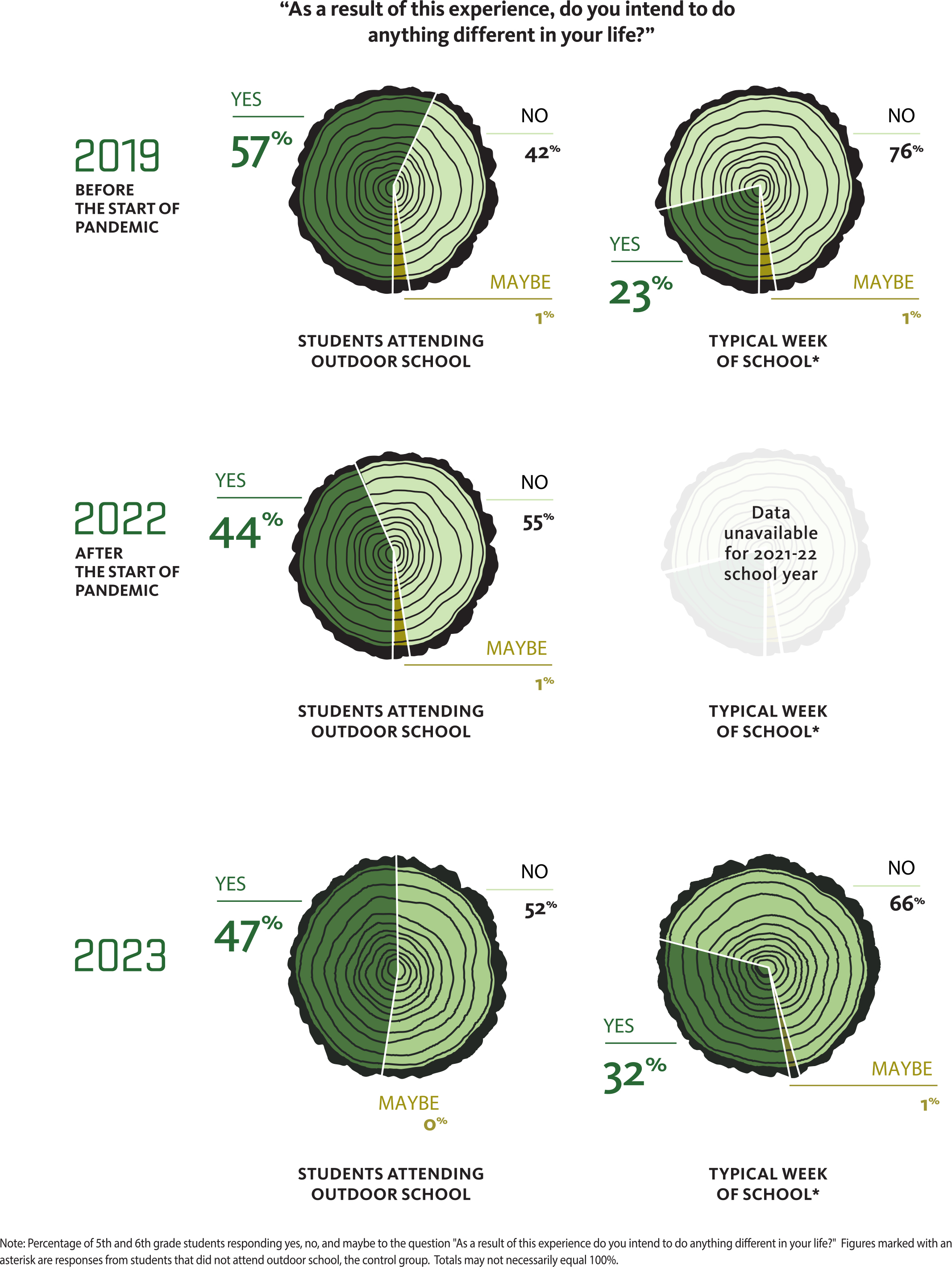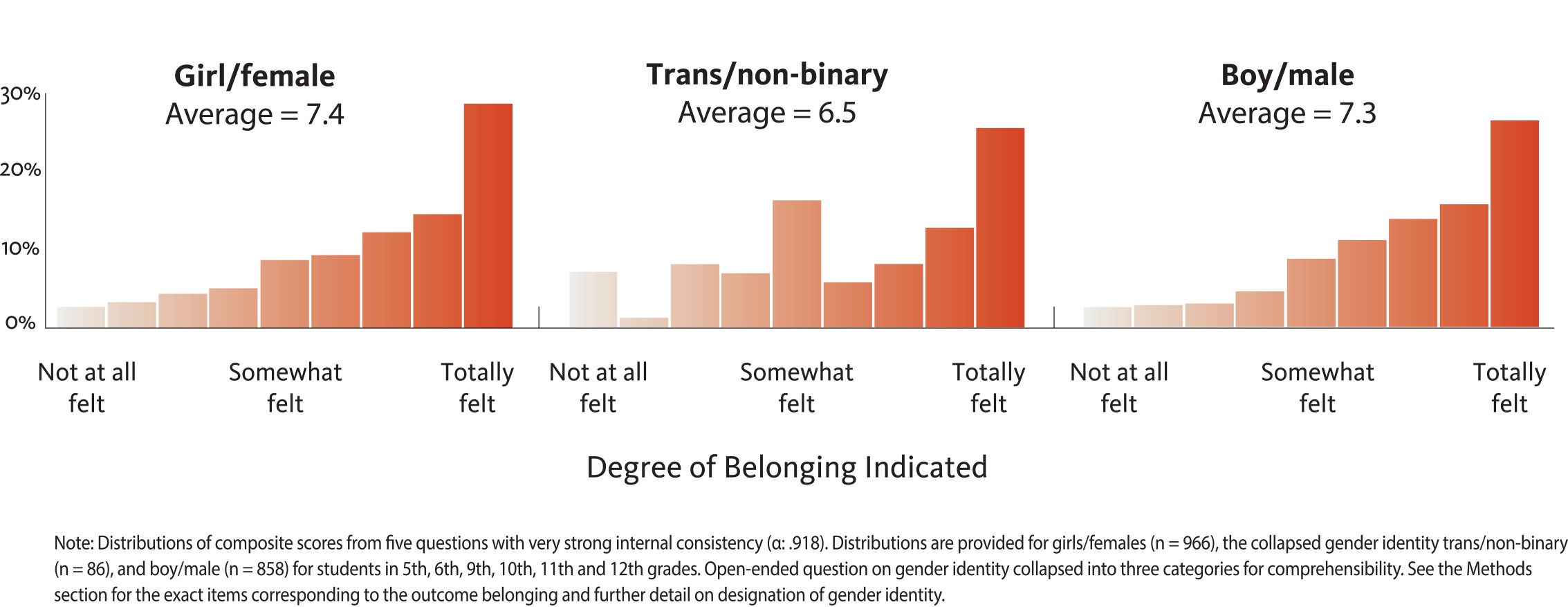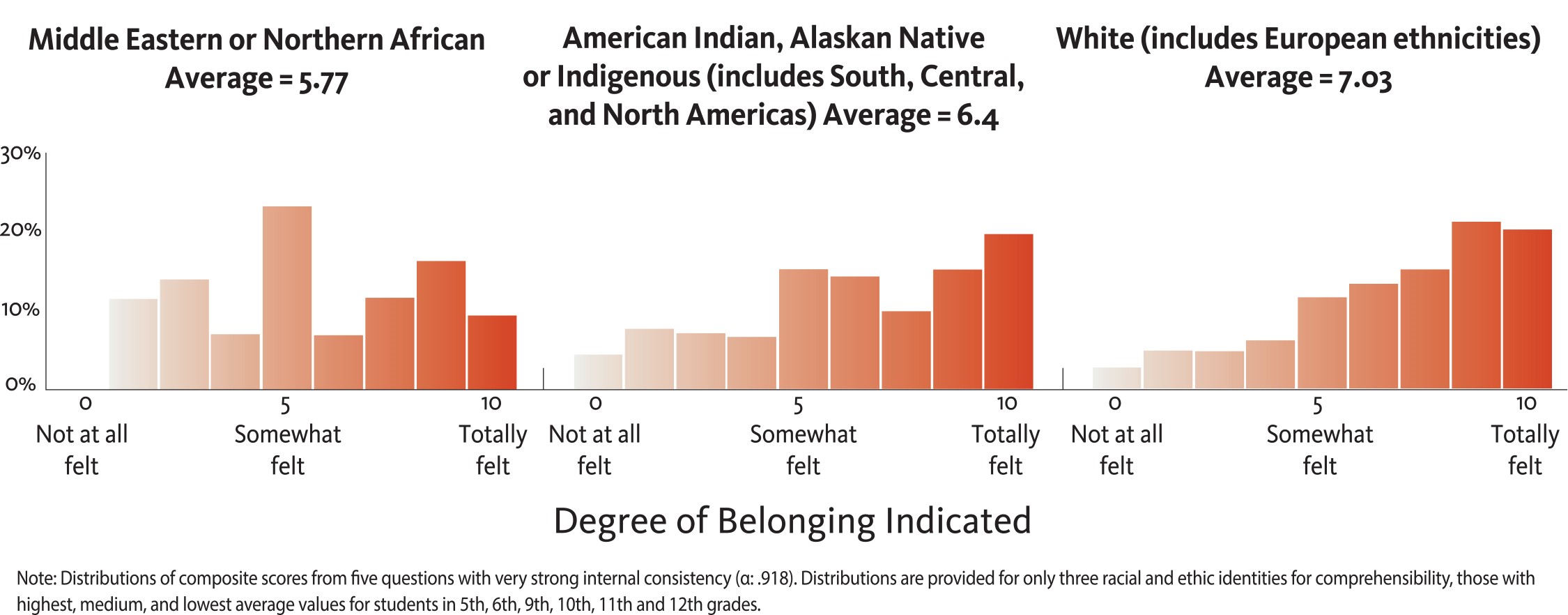Outdoor School for All! Student Outcomes in Oregon is an ongoing evaluation project of outdoor schools throughout Oregon. The intent of this project is to build understanding and knowledge about the outcomes of outdoor school programming and support program improvement. This evaluation supports many aspects of outdoor school which occur across Oregon. These include:
![]() Providing and developing inclusive and equitable programming
Providing and developing inclusive and equitable programming
![]() Authentic and reciprocal community engagement
Authentic and reciprocal community engagement
![]() Meeting legislative requirements
Meeting legislative requirements
![]() Providing professional development and learning informed by evaluation
Providing professional development and learning informed by evaluation
![]() Strengthening and diversifying the outdoor school workforce
Strengthening and diversifying the outdoor school workforce
Findings from the 2023 Student Outcomes Evaluation Report
Outdoor School has Greater Influence on Students than a Week in the Classroom. Most Outcomes are Significantly Higher in Outdoor School When Compared to a Week in the Classroom

The students learned a lot and engaged way more than they would in a classroom!
Students Who Attend Outdoor School More Likely to Do Something Different in Their Life

- “I will learn to live life to the fullest and not take this life for granted.” - 5th/6th grade student
- “I will have a more positive attitude, help people, and be more thoughtful.” - 5th/6th grade student
- “I had already planned on further education in environmental sciences but I would like to specialize in wetland sciences after ODS.” - high school leader
- “Students who have difficulty performing academically in a classroom setting are able to thrive in the outdoor experience. This doesn't simply go away when we are back in the classroom. The students simply move ahead in their achievements after returning” - classroom teacher
- “We do not exclude students from participating in ODS, even if their grades or extracurricular participation are low. If there are behavioral issues, then we meet as a team; teacher, student, ODS Director and parents to discuss options and review a 'behavior contract' for those students that this may be applicable for.” - classroom teacher
- As a parent to a student with an IEP … I witnessed a wonderful once in a lifetime experience for her and every single one of her classmates. So much thought and care to creating an educational experience that touched every need for every child. The learning that happened was immense and very impressive. - parent chaperone
- Outdoor school is a wonderful opportunity for students to see, feel, and learn about different aspects of our world. Also, to understand how and why different environments work together. Our outdoor school allows students to see the vast amount of options for employment opportunities and there is a great big world out there aside from their small hometown. - classroom teacher
 Outdoor school is good for student health and wellness
Outdoor school is good for student health and wellness
![]() Outdoor school promotes 21st Century Skills
Outdoor school promotes 21st Century Skills
(e.g., problem solving, collaboration)
![]() Students’ motivation and interest in learning is increased
Students’ motivation and interest in learning is increased
because of outdoor school
![]() Students pay more attention, try harder and have better attendance
Students pay more attention, try harder and have better attendance
after outdoor school
![]() Students learn science and about the environment at outdoor school
Students learn science and about the environment at outdoor school
![]() Outdoor school programs meet legislative requirements
Outdoor school programs meet legislative requirements
(e.g., behavior, engagement, performance)
![]() Youth develop Social Emotional Learning Core Competencies
Youth develop Social Emotional Learning Core Competencies
(e.g, empathy, responsibility, belonging) at outdoor school
![]() Outdoor school promotes ODE Essential Skills
Outdoor school promotes ODE Essential Skills
(e.g., critical thinking, teamwork)
Not all students experience outdoor school the same. We must do more in order to meet our vision that outdoor school creates equitable and positive outcomes for every Oregonian through empowering learning experiences
BELONGING:
HOW MUCH STUDENTS FEEL WELCOMED,RESPECTED, SUPPORTED, AND VALUED TO FULLY PARTICIPATE
Trans and non-binary students often report belonging
less than their peers

On average BIPOC students often report belonging
less than their peers
Results only displayed for lowest, middle and highest values of belonging for 10 racial and ethnic identities. See report for complete results

Learn more about outcomes of outdoor school in Oregon. See evaluation project reports for complete findings.





